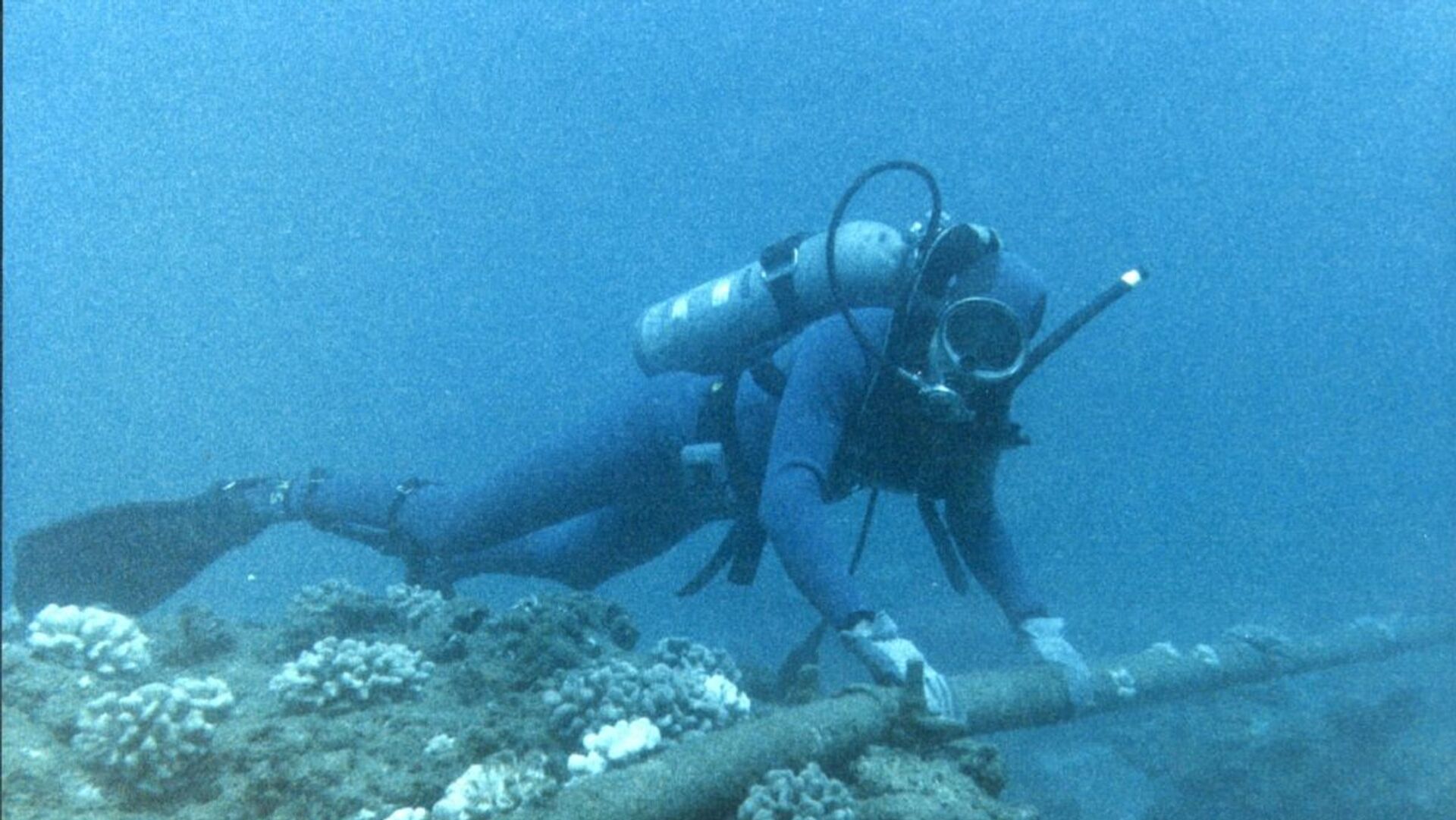https://sputnikglobe.com/20230512/eu-mulls-underwater-internet-cable-in-black-sea-to-reduce-dependence-on-russia---reports-1110280700.html
EU Mulls Underwater Internet Cable in Black Sea to Reduce Dependence on Russia - Reports
EU Mulls Underwater Internet Cable in Black Sea to Reduce Dependence on Russia - Reports
Sputnik International
MOSCOW (Sputnik) - The European Union intends to lay an underwater internet cable through the Black Sea to improve connectivity with Georgia and decrease dependency on communication infrastructure that passes through Russia, media reported on Friday, citing sources.
2023-05-12T08:03+0000
2023-05-12T08:03+0000
2023-05-12T08:03+0000
world
black sea
european union (eu)
us
internet
https://cdn1.img.sputnikglobe.com/img/07e4/08/0a/1080116781_0:0:1200:676_1920x0_80_0_0_744350dee49fa93d509171de223daf3f.jpg
A European Commission document seen by the newspaper said that the 1,100-kilometer (683-mile) cable will cost 45 million euros ($49 million) and is designed to link Europe with the Caucasus and lower "dependency on terrestrial fibre-optic connectivity transiting via Russia." A source familiar with the matter told the news outlet that the EU and Georgia in 2021 agreed in principle that this cable is a necessity, and the Ukraine conflict gave the project an additional impetus, underlying the need to reduce reliance on "connections that are not secure or stable." However, the project is still under consideration and no funds have been allocated for its realization, according to the report. Vodafone, a UK telecommunications corporation, also has plans for an underwater cable in the Black Sea, media reported. Its project, titled Kardessa, will connect Ukraine with Bulgaria, Turkey with Georgia, and, then, will go underground to Armenia, Kazakhstan and further into Asia. Currently, the company is looking for suppliers, a source told the newspaper. Vodafone itself, in turn, refused to comment. In December, the EU announced plans to invest around 2.3 billion euros in building the Black Sea Strategic Submarine Electricity Cable that will connect Georgia and Romania and ensure exports of green energy from the South Caucasus to Europe.
black sea
Sputnik International
feedback@sputniknews.com
+74956456601
MIA „Rossiya Segodnya“
2023
Sputnik International
feedback@sputniknews.com
+74956456601
MIA „Rossiya Segodnya“
News
en_EN
Sputnik International
feedback@sputniknews.com
+74956456601
MIA „Rossiya Segodnya“
Sputnik International
feedback@sputniknews.com
+74956456601
MIA „Rossiya Segodnya“
european union, underwater internet cable, black sea
european union, underwater internet cable, black sea
EU Mulls Underwater Internet Cable in Black Sea to Reduce Dependence on Russia - Reports
MOSCOW (Sputnik) - The European Union intends to lay an underwater internet cable through the Black Sea to improve connectivity with Georgia and decrease dependency on communication infrastructure that passes through Russia, media reported on Friday, citing sources.
A European Commission document seen by the newspaper said that the 1,100-kilometer (683-mile) cable will cost 45 million euros ($49 million) and is designed to link Europe with the Caucasus and lower "dependency on terrestrial fibre-optic connectivity transiting via Russia."
A source familiar with the matter told the news outlet that the EU and Georgia in 2021 agreed in principle that this cable is a necessity, and the
Ukraine conflict gave the project an additional impetus, underlying the need to reduce reliance on "connections that are not secure or stable." However, the project is still under consideration and no funds have been allocated for its realization, according to the report.
Vodafone, a UK telecommunications corporation, also has plans for an underwater cable in the Black Sea, media reported. Its project, titled Kardessa, will connect Ukraine with Bulgaria, Turkey with Georgia, and, then, will go underground to Armenia, Kazakhstan and further into Asia. Currently, the company is looking for suppliers, a source told the newspaper. Vodafone itself, in turn, refused to comment.
In December, the EU announced plans to invest around 2.3 billion euros in building the Black Sea Strategic Submarine Electricity Cable that will connect Georgia and Romania and ensure exports of green energy from the South Caucasus to Europe.


